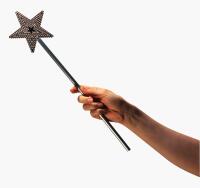The Magic Word That Can Win A Big Verdict
 If you represent the plaintiff in an automobile injury case, be sure and tell the jury the defendant “smashed” into your client’s car.
If you represent the plaintiff in an automobile injury case, be sure and tell the jury the defendant “smashed” into your client’s car.
If you’re on the other side, say the two vehicles merely made “contact.”
And if you want your daughter to grow up and become a judge, name her Jody or Jordan or Beverly – neutral monikers shared by men and women – at least if she plans on holding court in South Carolina.
These are just a few of the things researchers are discovering about the persuasive power of names and words.
Labels matter – and nowhere is this more true than the law.
A recent New Yorker article examined just how much of a psychological punch a single word can deliver. One example: in a classic experiment, a group of students watched the same series of traffic accidents, then were asked how fast the cars were going when the accident occurred.
“When the cars were described as having ‘contacted’ one another, the students estimated their speed to be thirty-two miles an hour,” according to the magazine. “[A]nother group estimated that the cars were travelling at forty miles an hour when they were described as having ‘smashed’ one another.”
In a related experiment, 14 percent of participants incorrectly remembered seeing shattered glass when told the cars “hit” one another. But 32 percent – more than double that number – mistakenly saw broken glass when told the cars “smashed” into one another.
These test subjects were quizzed on events they had witnessed just minutes before. Imagine the accuracy – or inaccuracy – of eyewitnesses who are asked to recall specific details that happened months or even years earlier.
What’s In a Name?
The second study took a look at the South Carolina judiciary. The researchers – who happened to be economists – examined whether female lawyers in the Palmetto State were more likely to become judges if their names were more masculine-sounding.
“[C]hanging a woman’s name from something feminine, such as Sue, to a gender-ambiguous name such as Kelly increased the odds of becoming a South Carolina judge by about 5 percent,” according to the ABA Journal, citing the Vancouver Sun. “Changing the name Sue to a predominantly male name such as Cameron tripled the odds of becoming a judge, and changing it to Bruce increased the odds by a factor of five.”
Why is this? The researchers suggest the “Portia hypothesis,” named for the Shakespeare character in The Merchant of Venice who disguises herself as a man to argue a case before an all-male court. The theory is that females with male-sounding names are more successful in legal careers than females with feminine-sounding names.
Thus we have judges in South Carolina named Bruce, Kelly, Cameron, Barney, Dale, Leslie, Jan and Rudell.
A Rose may be a Rose, as Shakespeare suggests. But a Ronnie stands a better chance at a judgeship.
And here is where I think the research falls short. None of the above individuals got to be judges because of their names. They got to where they are in their professional lives by working hard and doing well.
A name might open the door, but once inside the room you have to show you belong there.
And though you can describe an auto accident as a cataclysmic crash until you are blue in the face, if the only credible evidence is a dented fender and a sore neck, the worst damage will be to your own credibility.
Jay Reeves a/k/a The Risk Man is an attorney licensed in North Carolina and South Carolina. Formerly he was Legal Editor at Lawyers Weekly and Risk Manager at Lawyers Mutual. His given name is Ernest. Contact jay.reeves@ymail.com, phone 919-619-2441.
Sources:




